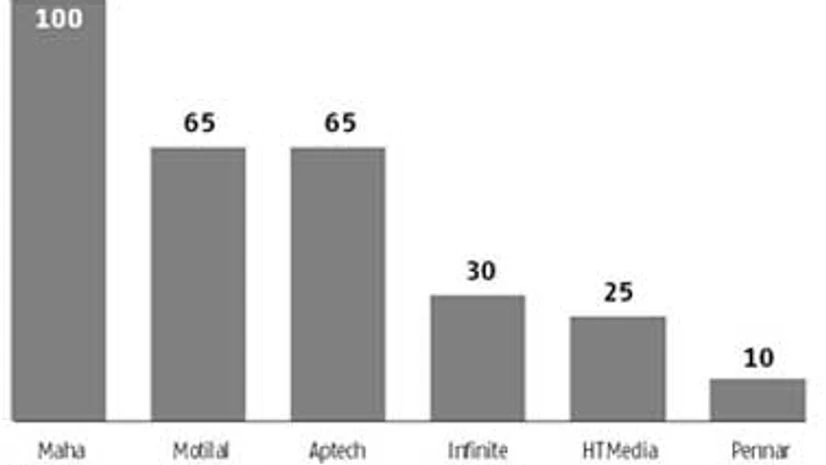Corporate India is pushing ahead with share buyback plans before the Securities and Exchange Board of India (Sebi) rolls out a stricter framework.
About 15 companies have announced share buybacks since January 2, when the securities market regulator, in a discussion paper, proposed a complete overhaul of buyback norms done through open market purchase.
Aimed at dissuading non-serious companies from launching buyback programmes, the new guidelines would increase purchase obligations, enhance the post-offer obligations and reduce the time for implementation to a fourth.
The number of share buybacks announced by companies since January this year are 50 per cent higher compared to the same period last year. However, the total proposed quantity of share buybacks was far higher last year, thanks to the highest-ever Rs 10,000-crore of share purchase announced by Reliance Industries.
Experts said the primary trigger for announcing share buybacks was to send out a signal that valuations were higher than what the market was assigning but the proposal to tighten norms might have forced companies to advance their launches. “It definitely makes sense for a company which intends to do a share buyback to announce it before the new norms. It will help them avoid possible restrictions such as a two-year bar from capital raising and far more stringent disclosures,” said a senior official with a foreign bank, requesting anonymity as he was not authorised to talk to the media.
The new buyback framework would mandate companies to buy back at least 50 per cent of the announced quantity and to set aside 25 per cent of the maximum buyback amount in an escrow account.
It also proposed to shorten the time frame to just three months from one year at present. Further, to bar companies from capital raising for two years after the buyback.
Sebi is expected to review these norms at its board meeting later this month. Last year, it overhauled the norms for share buybacks done through the ‘tender’ route. However, the bulk of buybacks in the Indian market take place through the ‘open market purchase’ route.

“The tender route is more transparent and simple. Shares are bought at a fixed price, which is higher than the market price. Most malpractices happen in open market buybacks, where the companies and bankers buy shares at their discretion. More companies should be encouraged to take this (tender) route,” said Prithvi Haldea, chairman and managing director of Prime Database.
The regulator has tried to partially address this issue in the discussion paper. Sebi has proposed if the size of the share buyback is 15 per cent of paid-up capital and free reserves, companies will have to use the tender method.
Apurva Shah, head of research, BNP Paribas Asset Management, also believes the higher number of buybacks could be triggered due to depressed share prices and lack of investment opportunities.
“The main motivation for companies to launch buybacks is to send out a signal that the value of their stock is higher than what the market is assigning. Also, there has been a clamour from investors for higher payouts, as there aren't many options to put capital to better use. The payout can be done through dividends or buybacks,” he said.

)
